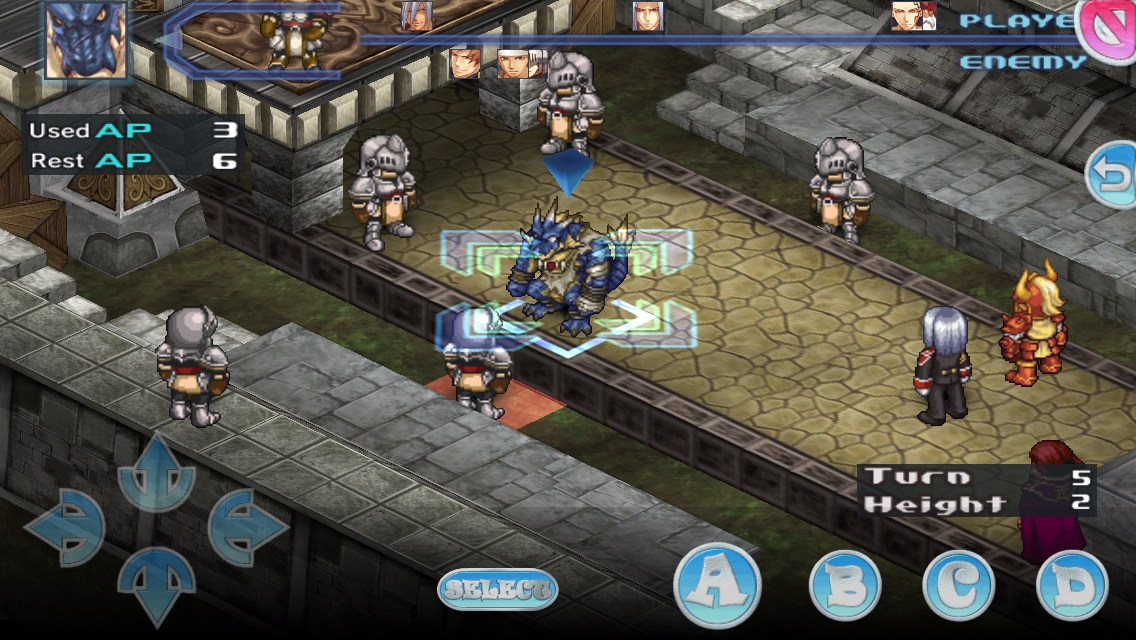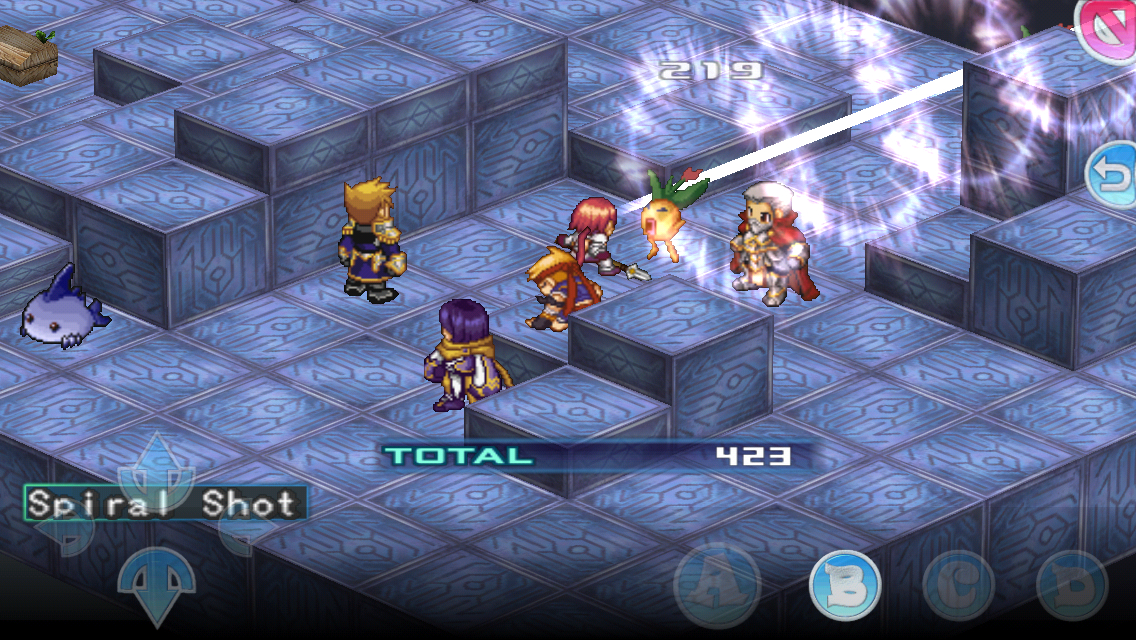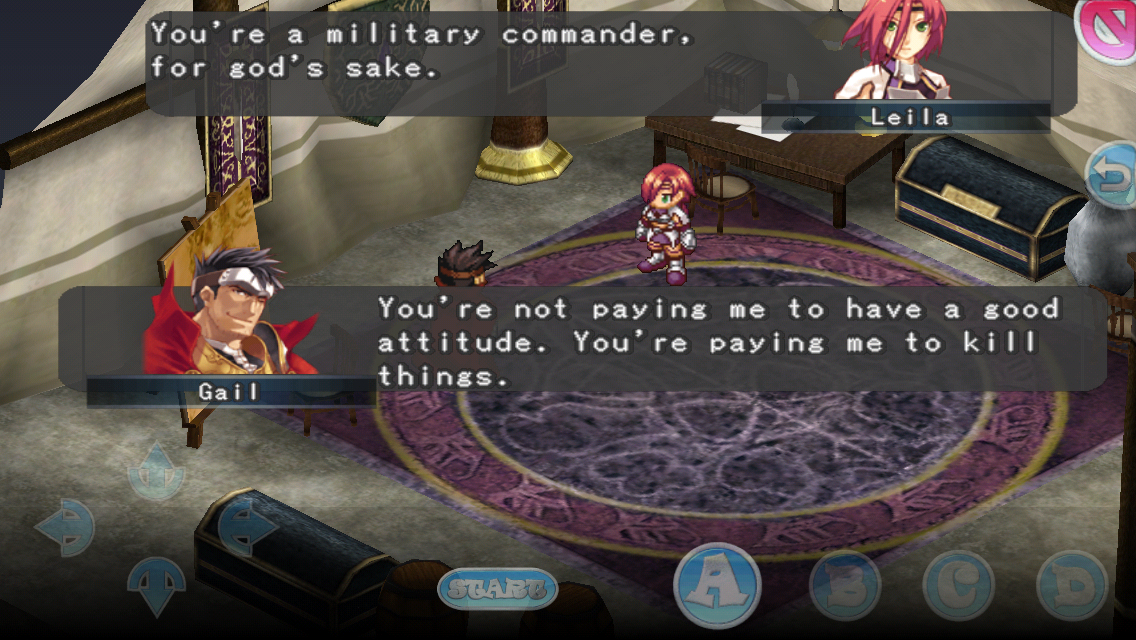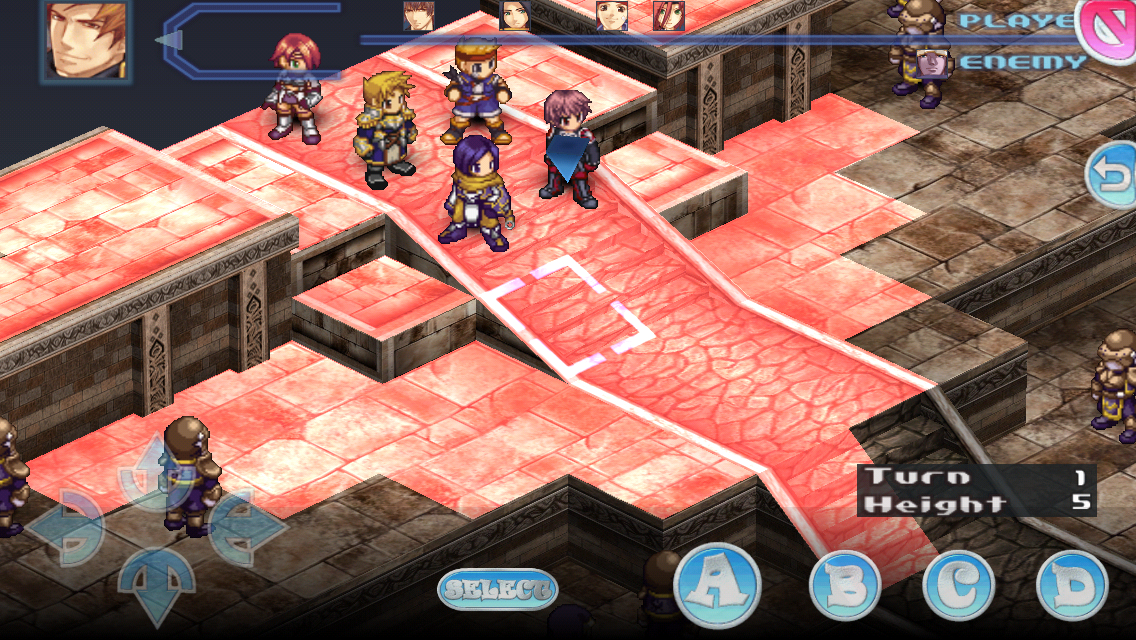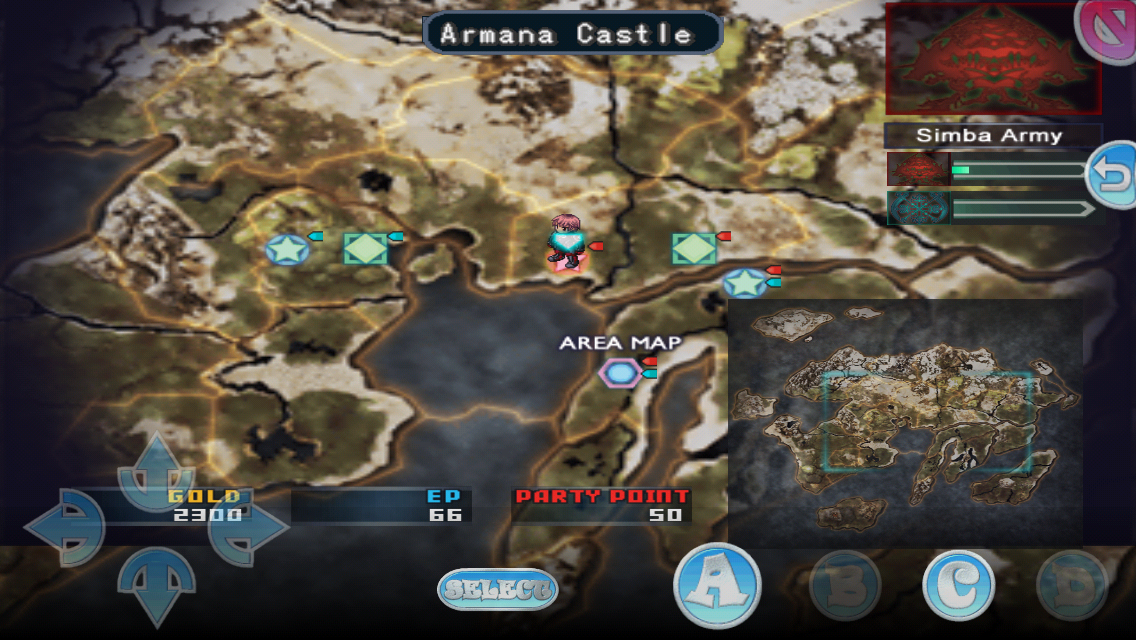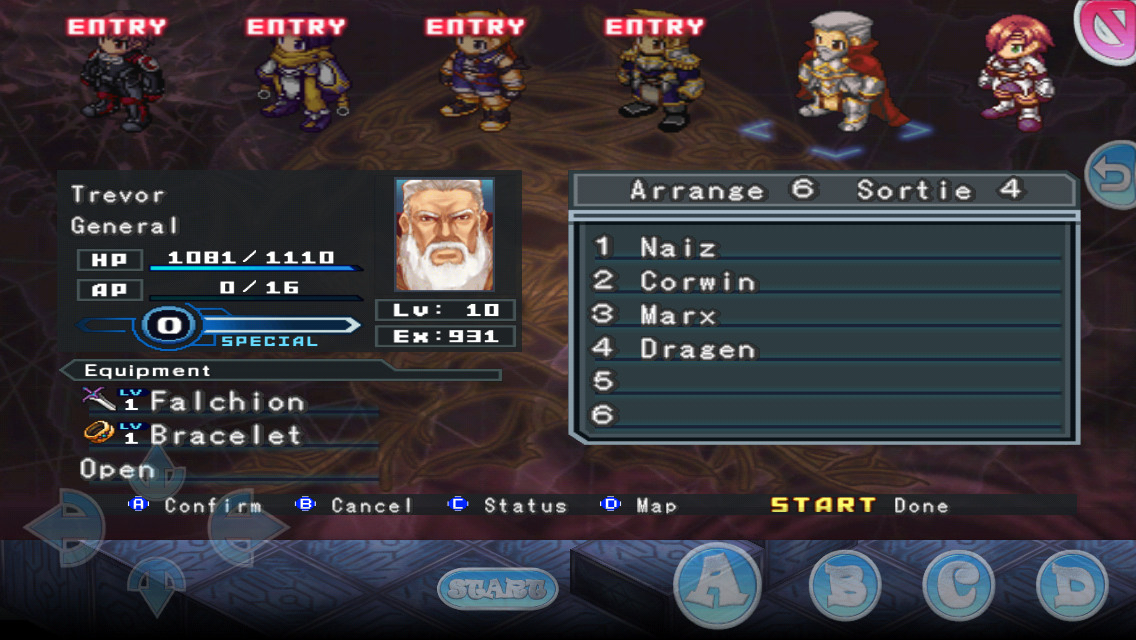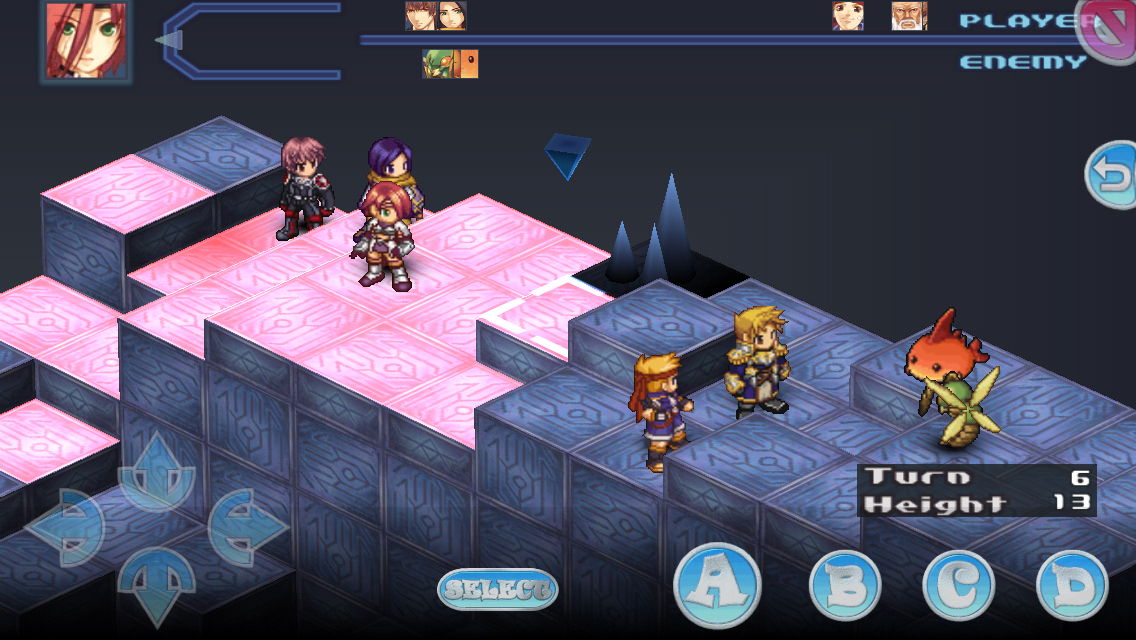 Hello, gentle readers, and welcome to the RPG Reload, the weekly feature where disc access time isn’t our problem. Each week, we take a look at an RPG from the App Store’s past to see how it holds up in the modern day. It’s a chance to revisit old favorites, reflect on them, and take a deeper dive than our reviews typically allow. As your guide on this journey, I try to choose a balanced plate from week to week that properly represents the diversity in the genre, but if you feel like I’m missing something, I’m always happy to take suggestions. Since the schedule is planned months in advance, I can’t promise your suggestion will show up soon, but it will go on the master list. You can give me tips by commenting below, posting in the Official RPG Reload Club thread, or by tweeting me at @RPGReload.
Hello, gentle readers, and welcome to the RPG Reload, the weekly feature where disc access time isn’t our problem. Each week, we take a look at an RPG from the App Store’s past to see how it holds up in the modern day. It’s a chance to revisit old favorites, reflect on them, and take a deeper dive than our reviews typically allow. As your guide on this journey, I try to choose a balanced plate from week to week that properly represents the diversity in the genre, but if you feel like I’m missing something, I’m always happy to take suggestions. Since the schedule is planned months in advance, I can’t promise your suggestion will show up soon, but it will go on the master list. You can give me tips by commenting below, posting in the Official RPG Reload Club thread, or by tweeting me at @RPGReload.
This week’s selection originally comes from a developer that is either famous or infamous, depending on your point of view. Spectral Souls (Free) was HyperDevBox’s first iOS port of one of Idea Factory’s games, a tradition they continued with Blazing Souls Accelate ($4.99), and the Record Of Agarest War games. All of the Idea Factory games ported by HyperDevBox are strategy RPGs, and there’s no question that there’s a certain flavor common to all of them. I’m not sure if Spectral Souls is the best of the lot, but it’s certainly the most approachable, and that makes it a good choice for our first Idea Factory RPG Reload.
Idea Factory, or as they’re not-so-affectionately known among Japanese gamers, Idea F**k, has pretty deep roots in the Japanese game industry. Their story starts back at Data East, a now-defunct game company founded in 1976. Originally, Data East was focused more on hardware for game machines, but they soon decided to get their feet wet making games. They released their first game, Super Break, in 1978, and for the next few years most got along by copying whatever was hot. Their first noteworthy hit was early fighting game Karate Champ, but they would go on to produce many other popular titles including BurgerTime, Bad Dudes, and Joe & Mac. They also had a hand in a few RPGs. They published Crea-Tech’s Metal Max series and developed the Glory Of Heracles series. In their later years, they became a pretty big player in the temporarily revived American pinball market, with their tables based on Star Wars and The Simpsons doing particularly well.
Unfortunately, Data East never quite made a successful transition into the home market. They did alright for themselves during the early years, with the 8-bit NES era probably their salad years, but when arcades started to die in most of the world, Data East wasn’t going to be long after them. After a few years of struggling, Data East ceased to exist in 2003. These days, the company is probably more noteworthy for the companies that spawned out of employees leaving Data East than for any of its games. Several developers spun out of the company, but a couple of them are more famous than the others. Technos Japan, the developers of Double Dragon and River City Ransom, was the first well-known spin-off of Data East. Of course, they aren’t around anymore, having gone bankrupt and mostly reformed as Million Co. The other major developer formed from Data East employees is the one relevant to our topic, Idea Factory.
Established in 1994, they wouldn’t have their first game ready for a couple of years. Titled Spectral Tower, it was a PlayStation 1 overhead dungeon-crawler with turn-based battles. Importantly, it introduced the world of Neverland, a setting that would persist through many of Idea Factory’s titles. The following year, in 1997, Idea Factory would offer its first taste of strategy in the spin-off Spectral Force. Though considered to be of poor quality by most Japanese gamers, Idea Factory’s games must have been profitable enough, because they released a veritable flood of them through the years. In 2003, as the company they came from collapsed, they released a game that kicked off the series which would eventually serve as their introduction to the world market. Shinki Genso: Spectral Souls was a Japanese-style strategy RPG for the PlayStation 2, similar in many ways to Final Fantasy Tactics ($13.99). It told the tale of a young man from Earth who got sucked into the Neverland world, becoming a hero in a war between the humans of Neverland and the demon Neverland Army. Like most of Idea Factory’s games, it was passable enough, if not particularly exciting.
The game did well enough to get a sequel, which released in January of 2005 on the PlayStation 2. Sony’s PSP had recently launched, and Idea Factory decided to do a port of the sequel for the new handheld. Released later in 2005, the port was an unmitigated disaster, with ridiculous loading times between just about every animation and action. For reasons I can’t begin to imagine, Disgaea creator Nippon Ichi Software opted to release this version in the United States in late 2006 under the title Spectral Souls: Resurrection Of The Ethereal Empires. Suffice it to say, reviews weren’t kind. Spectral Souls was a pretty middle-of-the-road game to start with. It certainly didn’t need technical issues on top of it. They would do a better job on the next (and thus far, final) game in the series, Blazing Souls Accelate, but I think it’s fair to say that Idea Factory’s debut outside of Japan made no mystery about how they earned their nickname.
Of course, Idea Factory is slightly better regarded these days, if only a little. The Agarest War games had their fans, and the Hyperdimension Neptunia series has developed a devoted cult following, especially on the PlayStation Vita. It’s tempting to attribute the merits of those series to the various co-developers, but that might be selling Idea Factory a little short. I don’t think they’ll ever make a great game, but they certainly have enough experience to make decent ones at this point. With their subsidiary companies Compile Heart and Otomate performing fairly well in the RPG and visual novel genres respectively, it’s doubtful they’ll see much need to return to the Spectral series that was once their bread and butter, but who knows what the future might bring?
When Spectral Souls first hit iOS and I saw positive reviews on TouchArcade and another site, I was a bit shocked. With the PSP version firmly in mind, I wondered how the game could possibly have received decent scores. The answer to that ended up being HyperDevBox Japan, a French-Japanese developer founded in 2005. The biggest problems with Spectral Souls were technical ones, something HyperDevBox was able to smooth out completely. Without the severe loading issues present in the original version, the game was free to show its real strengths and weaknesses. HyperDevBox Japan has mostly devoted itself to releasing Idea Factory’s games on mobile systems, with their current project being Record Of Agarest War 2. I’m reasonably certain they were the first developer to port an Xbox 360 game to mobiles. Admittedly, Agarest is not a terribly taxing 360 game, but that’s still a strong sign of their technical skill.
So Spectral Souls is finally playable without aggravating loading times. Is it worth playing, though? That’s a pretty hard question to answer. There are a lot of common complaints with games from Idea Factory. They really don’t know how to pace a game out properly, making almost all of their games feel a lot longer than they should be. Spectral Souls is somewhere between 80 and 100 hours long, depending on how thorough you decide to be, and it stops being particularly interesting about a quarter of the way in. I’ll get into why in a little bit, but let’s talk about the other strange issue regularly spotted in Idea Factory games. Namely, their fondness for overly-complex systems that are scarcely of any value to the player. Spectral Souls isn’t as bad as their other games on iOS, but it’s still got a few components that aren’t useful for much besides providing the illusion of depth.
Storywise, this is a middle chapter of sorts, but it stands decently enough on its own. Like its predecessor, it follows the story of a war between the humans and demons of Neverland. In what is perhaps its most interesting flourish, you don’t play the game from a single side’s perspective. Instead, you’re meant to switch between the two opposing forces, with a third group composed of parts of both entering the fray later in the game. You can generally see everything from all available angles, but certain battles, called Historical Points, can only be completed with one army. Based on the order in which you do events, which army you choose for Historical Points, and how well you complete certain battles, you’ll come to one of several endings. The requirements for the True Ending are pretty ridiculous, though, the kind of thing only devoted fans would ever find without the use of an FAQ.
While the overall plot is presented in an interesting way, the actual contents of the plot are a bit lacking. None of the characters stand out very well, and in a large cast, that’s a problem. Of course, it’s easy to see why they’re underdeveloped. The game spends barely any time building their stories, with the cut-scenes between battles spent largely on forwarding the main plot. The “surprise" concerning the whereabouts of the hero of the first game is ridiculously obvious nearly from the start of the game. I can appreciate the effort here, and it’s at least something to keep you going forward, but I wish the whole narrative could have lived up to the clever nature of its gimmick. Tactics Ogre, this is not. One gets the sense that Idea Factory was trying to spread a regular-sized story out to cover an extremely long game, and it ends up like soup that’s been too watered down.
That length seems to come from good intentions. I’ve no doubt that Idea Factory simply wanted to give the player a huge value, and I know at least a few fans of the game who see it that way. And it’s not like the developer didn’t try to add in mechanics to justify that length. If you hit on a good system, the time will pass quickly and happily. Just look at Final Fantasy Tactics and its fantastic job system, for example. Spectral Souls tries a few things, but I don’t feel like any of them come together the way they need to. The first is the combo system used in battle. You can store or charge attacks to unleash combinations of moves with a single character or in groups. The only catch is that if an enemy hits the character before the combo is set off, they’ll be knocked out of it, basically missing a turn. The other attempt to add depth comes in the synthesis system, and it’s the usual Idea Factory tangled yarn. Combos are fun to set up and can be pretty tricky to pull off in certain levels. Crafting is kind of annoying and lends the usual problem of having a billion different items in your pack with little idea as to what they might be for.
The worst thing is, neither system is necessary or even terribly beneficial to the player looking to get to the end of the game. Unless you’re an incredibly careful planners, opportunities to safely combo will only occasionally present themselves, and even in those cases, it’s not always the best tactical choice. Synthesis yields some excellent rewards if you sink the considerable time it takes to figure it out, but standard equipment and skills from shops and enemy drops will more than suffice in just about every battle. There are certain battles that present a serious difficulty spike, but being able to pass those relies more on strategy and level than gear and combos. If you happen to get into those systems, you’ll probably have a blast with the game on the whole. On the other hand, if you’re like me and you find them kind of pointless, this game can be a long haul to the finish.
That’s where being portable works in the favor of Spectral Souls. It’s pretty easy to bang out the game one or two missions at a time. Yes, it will take forever and a day to beat it at that pace, but what’s your rush? The mechanics are solid enough to enjoy moment to moment, and if the story, characters, and sub-systems are all forgettable, that’s almost a benefit. Okay, yes, I’m being a little cute here, but the long and short of it is that Spectral Souls is a pretty decent game in short bursts, even if I find it absolutely soul-draining in longer sessions. And even if it doesn’t come together as well as one would hope, I can at least appreciate that Idea Factory made a strong effort to create an epic strategy RPG at a time when that wasn’t the most fashionable or financially prudent thing to do.
The mobile version of Spectral Souls is far and away the definitive version of the game. HyperDevBox Japan did a great job with it, and they’ve taken excellent care of it since it released just over three years ago. The game features support for AirPlay, just about every iOS controller under the sun, and the iPhone 5 family’s larger screen size. The initial release of the game was a free download that allowed you to play the first three missions before selling you an IAP to unlock the remainder of the game, but late last year, HyperDevBox added a second premium version that has the whole game unlocked automatically. The last update to either app was in November of 2014, and while it would be nice to have iPhone 6 family support, the game is otherwise in pretty good condition. I only have a few gripes with the port. First, if you’re not using a controller, you’ll have to use virtual controls, no matter how much you want to just touch things on the screen. The other problem I have is the lack of any sort of cloud saving. This is a hefty app, and it would be nice to easily move from one device to another depending on the situation.
When it comes down to it, there are a lot of really good strategy RPGs on iOS, but if you want something substantial that adheres fairly closely to the look and basic feel of Final Fantasy Tactics, Spectral Souls is still probably one of the better options on the App Store. It falls well short of Square Enix’s classic, of course, but it’s a decent enough attempt, and it’ll certainly keep you busy for a while. In addition, the price on iOS feels about right, even if it is relatively high by platform standards. Just make sure you’ve looked into Final Fantasy Tactics first. Spectral Souls is more like a garbage bag full of popcorn than Final Fantasy Tactics‘s proper meal.
That’s just my take on Spectral Souls, though. What do you all think of the game? And how about Idea Factory? Are they a threat, or a menace? I want to know what you think, so please leave a comment below, post your thoughts in the Official RPG Reload Club thread, or tweet me at @RPGReload. We’ll be recording the latest episode of the RPG Reload Podcast this weekend, so if you have any questions for us to answer, send them on to [email protected]. As for me, I’ll be back next week with the second part in our history of handheld RPGs series. This time, featuring actual video games! How exciting! As always, thanks for reading.
Next Week’s Reload: The History Of Handheld RPGs – Part 2
